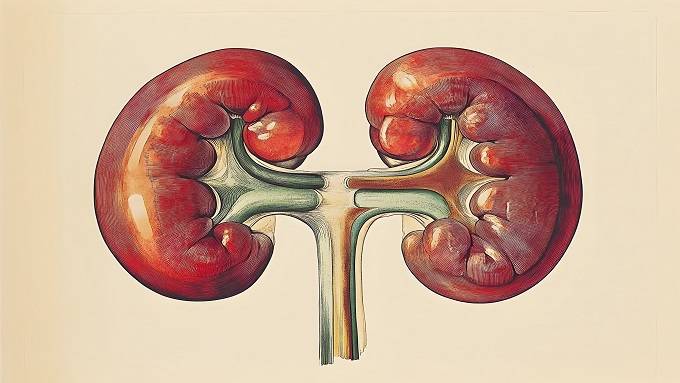MEDICATION ADHERENCE IN TYPE 2 DIABETES MELLITUS PATIENTS WITH CORONARY HEART DISEASE

Downloads
Highlights
- Type 2 diabetes mellitus (T2DM) that is not appropriately handled can result in macro- or micro-complications.
- Medication adherence is one of the most important efforts to do to prevent complications in chronic diseases such as T2DM.
Abstract
Background: Diabetes medication non-adherence can aggravate the patient's condition and raise the chance of acquiring diabetes complications such as coronary heart disease. Medication adherence can help prevent micro- and macrovascular problems. Objective: This study aimed to investigate the medication adherence of type 2 diabetic patients with coronary heart disease. Material and Method: This research used a systematic literature review for the research design, with a PRISMA chart as a guideline. Researchers searched 3 databases using predefined keywords: PubMed, Google Scholar, and ScienceDirect. Result: The search yielded 3.373 pieces of literature, and six pieces that fit the requirements were chosen. The total number of people who responded was 9.950. More men over 60 years old who have had diabetes for more than 5 years, who are taking oral medication, insulin, or combination treatment, and who are ex-smokers were shown to have characteristics of people with type 2 diabetes mellitus and coronary heart disease. Results from a systematic literature review revealed five kinds of literature with low medication adherence levels and one literature with a high medication adherence rate. Conclusion: Medication adherence differs among type 2 diabetic patients with coronary heart disease. More research, however, has revealed that the level of medication adherence in type 2 diabetic patients with coronary heart disease remains low.
Afroz, A., Zhang, W., Wei Loh, A., Jie Lee, D. X., Billah, B. 2019. Macro- and micro-vascular complications and their determinants among people with type 2 diabetes in Bangladesh. Diabetes & Metabolic Syndrome: Clinical Research & Reviews, 13(5): 2939–2946. doi: 10.1016/j.dsx.2019.07.046.
Alatawi, Y. M., Kavookjian, J., Ekong, G., Alrayees, M. M. 2016. The association between health beliefs and medication adherence among patients with type 2 diabetes. Research in Social and Administrative Pharmacy, 12(6): 914–925. doi: 10.1016/j.sapharm.2015.11.006.
Alfian, R. 2015. Korelasi antara kepatuhan minum obat dengan kadar gula darah pada pasien diabetes melitus rawat jalan di RSUD Dr. H. Moch. Ansari Saleh Banjarmasin. Jurnal Pharmascience, 2(2). doi: 10.20527/JPS.V2I2.5818.
Alramadan, M. J., Magliano, D. J., Alhamrani, H. A., Alramadan, A. J., Alameer, S. M., et al. 2019. Lifestyle factors and macro- and micro-vascular complications among people with type 2 diabetes in Saudi Arabia. Diabetes & Metabolic Syndrome: Clinical Research & Reviews, 13(1): 484–491. doi: 10.1016/j.dsx.2018.11.007.
American Diabetes Association. 2020. Standards of medical care in diabetes-2020 abridged for primary care providers. Clinical diabetes : a publication of the American Diabetes Association, 38(1): 10–38. doi: 10.2337/cd20-as01.
Aquarista, N. C. 2017. Differences characteristics patients diabetes mellitus type 2 with and without coronary heart disease. Jurnal Berkala Epidemiologi, 5(1): 37. doi: 10.20473/jbe.V5I12017.37-47.
Bussell, J. K., Cha, S., Grant, Y. E., Schwartz, D. D., Young, L. A. 2017. Ways health care providers can promote better medication adherence. Clinical Diabetes, 35(3): 171–177. doi: 10.2337/cd016-0029.
Fatimah, R. N. 2015. Diabetes melitus tipe 2. Medical Journal of Lampung University, 4(5). Available at: https://juke.kedokteran.unila.ac.id/index.php/majority/article/view/615.
Hestiana, D. W. 2017. Faktor -faktor yang berhubungan dengan kepatuhan dalam pengelolaan diet pada pasien rawat jalan diabetes mellitus tipe 2 di Kota Semarang. Journal of Health Education, 2(2). doi: 10.15294/jhe.v2i2.14448.
Lam, W. Y., Fresco, P. 2015. Medication adherence measures: An overview. BioMed Research International, 2015: 1–12. doi: 10.1155/2015/217047.
Malik, S., Billmek, J., Greenfield, S., Sorkin, D. H., Ngo-Metzger, Q., et al. 2013. Patient complexity and risk factor control among multimorbid patients with type 2 diabetes. Medical Care, 51(2): 180–185. doi: 10.1097/MLR.0b013e318273119b.
Munkhaugen, J., Hjelmesí¦th, J., Otterstad, J. E., Helseth. R., Sollid, S. T., et al. 2018. Managing patients with prediabetes and type 2 diabetes after coronary events: individual tailoring needed - a cross-sectional study. BMC Cardiovascular Disorders, 18(1): 160. doi: 10.1186/s12872-018-0896-z.
Naito, R., Miyauchi, K. 2017. Coronary artery disease and type 2 diabetes mellitus. International Heart Journal, 58(4): 475–480. doi: 10.1536/ihj.17-191.
Nanda, O. D., Wiryanto, B., Triyono, E. A. 2018. Hubungan kepatuhan minum obat anti diabetik dengan regulasi kadar gula darah pada pasien perempuan diabetes mellitus. Amerta Nutrition, 2(4): 340. doi: 10.20473/amnt.v2i4.2018.340-348.
Nursalam. 2020. Pedoman penyusunan literature dan systematic review. Surabaya: Fakultas Keperawatan Universitas Airlangga. Available at: http://ners.unair.ac.id/site/index.php/download /category/6-bidang-akademik?download=265:pedoman-systematic-dan-literature-review.
Saibi, Y., Romadhon, R., Nasir, N. M. 2020. Kepatuhan terhadap pengobatan pasien diabetes melitus tipe 2 di Puskesmas Jakarta Timur. Jurnal Farmasi Galenika (Galenika Journal of Pharmacy) (e-Journal), 6(1): 94–103. doi: 10.22487/j24428744.2020.v6.i1.15002.
Sánchez-Hernández, M. S., Rodríguez-Caldero, M. C., Martín-Pérez, M. P., Mira-Solves, J. J., Vitaller-Burillo, J., et al. 2020. Impact of adherence to Mediterranean diet and/or drug treatment on glycaemic control in type 2 diabetes mellitus patients: DM2-CUMCYL study. Primary Care Diabetes, 14(6): 685–691. doi: 10.1016/j.pcd.2020.06.008.
Saputri, R. D. 2020. Komplikasi sistemik pada pasien diabetes melitus tipe 2. Jurnal Ilmiah Kesehatan Sandi Husada, 11(1): 230–236. doi: 10.35816/jiskh.v11i1.254.
Shahjehan, R. D., Bhutta, B. S. 2023. Coronary artery disease, StatPearls. Available at: http://www.ncbi.nlm.nih.gov/pubmed/24811552.
Soelistijo, S., Suastika, K., Lindarto, D., Decroli, E., Permana, H., et al. 2021. Pedoman pengelolaan dan pencegahan diabetes melitus tipe 2 di Indonesia 2021. Jakarta: PB. PERKENI. Available at: https://pbperkeni.or.id/wp-content/uploads/2021/11/22-10-21-Website-Pedoman-Pengelolaan-dan-Pencegahan-DMT2-Ebook.pdf.
Wabe, N., Angamo, M., Hussein, S. 2011. Medication adherence in diabetes mellitus and self management practices among type-2 diabetics in Ethiopia. North American Journal of Medical Sciences: 418–423. doi: 10.4297/najms.2011.3418.
Yuliani, F., Oenzil, F., Iryani, D. 2014. Hubungan berbagai faktor risiko terhadap kejadian penyakit jantung koroner pada penderita diabetes melitus tipe 2. Jurnal Kesehatan Andalas, 3(1). doi: 10.25077/jka.v3i1.22.
Copyright (c) 2023 Shafiero Muhammad Elsya Putera, Sony Wibisono, Andrianto, Hermina Novida

This work is licensed under a Creative Commons Attribution 4.0 International License.
1. The journal allows the author(s) to hold the copyright of the article without restrictions.
2. The journal allows the author(s) to retain publishing rights without restrictions.
3. The legal formal aspect of journal publication accessibility refers to Creative Commons Attribution 4.0 International License (CC-BY).
































